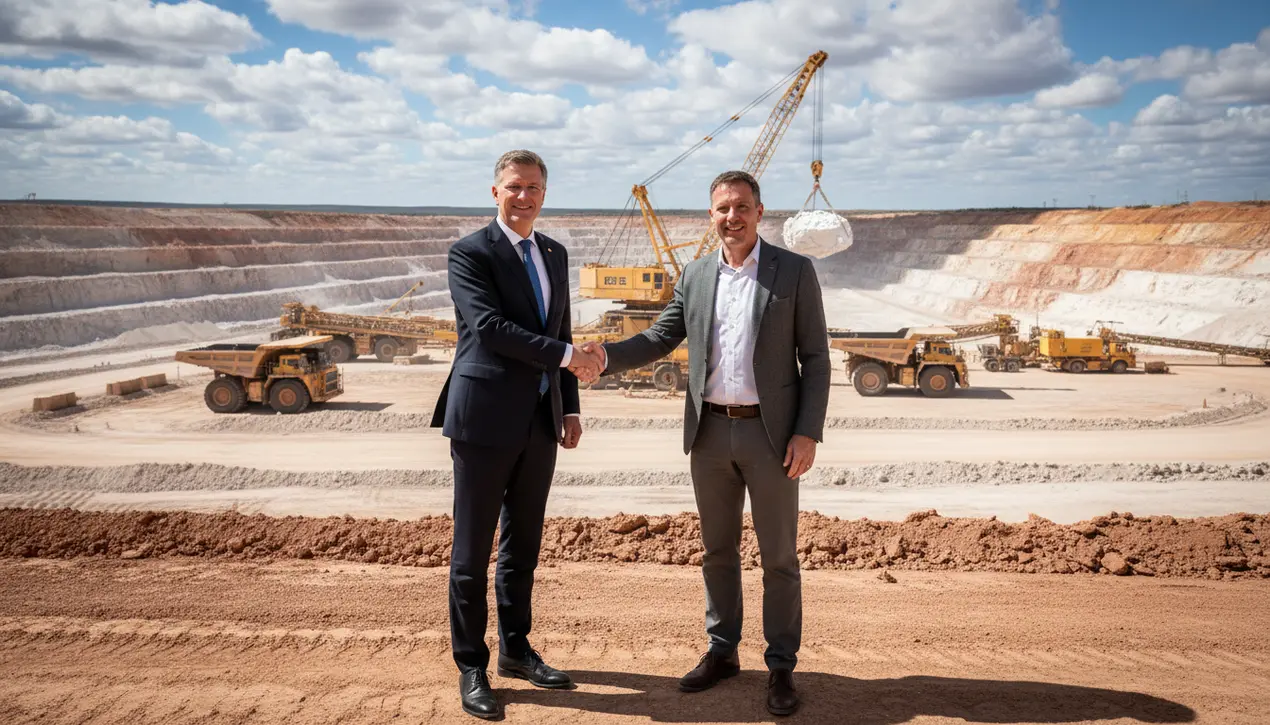
PoliticsdiplomacyTrade Agreements
EU and Australia Partner on Critical Raw Materials Supply
OL
Oliver Scott
2 hours ago7 min read6 comments
The European Investment Bank and the Australian government announced a significant deepening of their cooperation on critical raw materials this Monday, a strategic move that signals a profound shift in global supply chain dynamics as Western powers accelerate their decoupling from Chinese dominance. This partnership, emerging from high-level negotiations that have been ongoing for months, represents a calculated response to one of the most pressing geopolitical vulnerabilities facing the developed world.With the stark exception of Japan, every G7 nation and the European Union itself maintains a supply chain posture that ranges from heavily to almost exclusively reliant on China for the very materials that power modern civilization—from the rare earth magnets essential for everything from electric vehicles to advanced military hardware, to the lithium, cobalt, and nickel that form the bedrock of the global battery revolution. European officials and numerous industry insiders have consistently pointed to financing as the primary bottleneck in the bloc's ambitious plans to foster alternative, resilient supply lines, a challenge this new partnership aims to address head-on by leveraging the EIB's financial heft and Australia's vast, untapped mineral wealth.The geopolitical calculus here is unmistakable; this is not merely a trade agreement but a foundational element of a broader Western strategy to build a 'China-plus' supply network, mitigating the immense risk of supply disruption that could cripple entire industries during a period of heightened tension. Australia, possessing some of the world's largest reserves of lithium, cobalt, and rare earth elements, is positioning itself as the 'reliable supplier' to the democratic world, a role that carries both immense economic opportunity and significant strategic weight.Analysts are already modeling the potential second-order effects, including accelerated investment in Australian mining infrastructure, potential price volatility as new supply chains compete with established ones, and the likely reaction from Beijing, which has historically used its near-monopoly in these sectors as a potent tool of economic statecraft. The success of this initiative hinges on its ability to overcome not just the financial hurdles but also the immense technical and logistical challenges of rapidly scaling complex mining and processing operations to meet voracious European demand.Failure is not an option for Brussels, whose Green Deal and digital transformation agendas are wholly dependent on securing a stable, ethical, and affordable flow of these critical inputs. This partnership, therefore, should be viewed as a critical stress test for the West's capacity to collectively execute on its strategic autonomy ambitions, with the outcome directly impacting everything from the affordability of electric cars to the resilience of continental defense systems.
#featured
#European Investment Bank
#Australia
#critical raw materials
#supply chains
#China reliance
#trade cooperation
#Western powers
Stay Informed. Act Smarter.
Get weekly highlights, major headlines, and expert insights — then put your knowledge to work in our live prediction markets.
Related News
Comments
Loading comments...
© 2025 Outpoll Service LTD. All rights reserved.